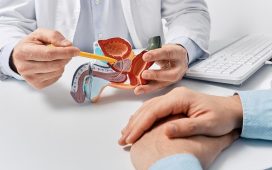Today, we will focus on the significance of routine check-ups and screenings as vital components of preventive care. By prioritizing regular visits to healthcare professionals, we can detect potential health issues early and ensure timely interventions.
Key Points to Cover:
- Establishing a Doctor-Patient Relationship: Discuss the importance of building a trustinGuardians of Health: Harnessing the Power of Regular Check-ups for Optimal Preventive CareGuardians of Health: Harnessing the Power of Regular Check-ups for Optimal Preventive Careg relationship with a primary care physician who can oversee your preventive care. This relationship can help you feel comfortable discussing your health concerns and make sure you are getting the care you need.
- Comprehensive Health Assessments: Explain the significance of physical examinations, medical history reviews, and health risk assessments during check-ups. These assessments can help your doctor identify any potential health problems and develop a plan to keep you healthy.
- Screening Tests: Explain the purpose and benefits of various screenings, such as blood pressure checks, cholesterol tests, mammograms, Pap smears, and colonoscopies. These screenings can help detect health problems early, when they are most treatable.
- Immunizations: Stress the importance of staying up-to-date with vaccinations to prevent communicable diseases and protect public health. Vaccines work by exposing the body to a weakened or inactive form of a virus or bacteria, which helps the body develop immunity to the disease.
- Lifestyle Counseling: Emphasize the value of receiving guidance from healthcare professionals regarding healthy lifestyle choices, including nutrition, exercise, stress management, and smoking cessation. These choices can help reduce your risk of developing chronic diseases and improve your overall health.
- Early Detection and Intervention: Illustrate how routine check-ups can help identify health issues in their early stages, allowing for prompt intervention and better treatment outcomes. For example, if cancer is detected early, it is more likely to be successfully treated.
Regular check-ups are a cornerstone of preventive care. By scheduling routine visits with healthcare professionals, we prioritize our health and increase the likelihood of detecting potential health concerns early. By following the tips in this blog post, you can take steps to improve your health and well-being.







